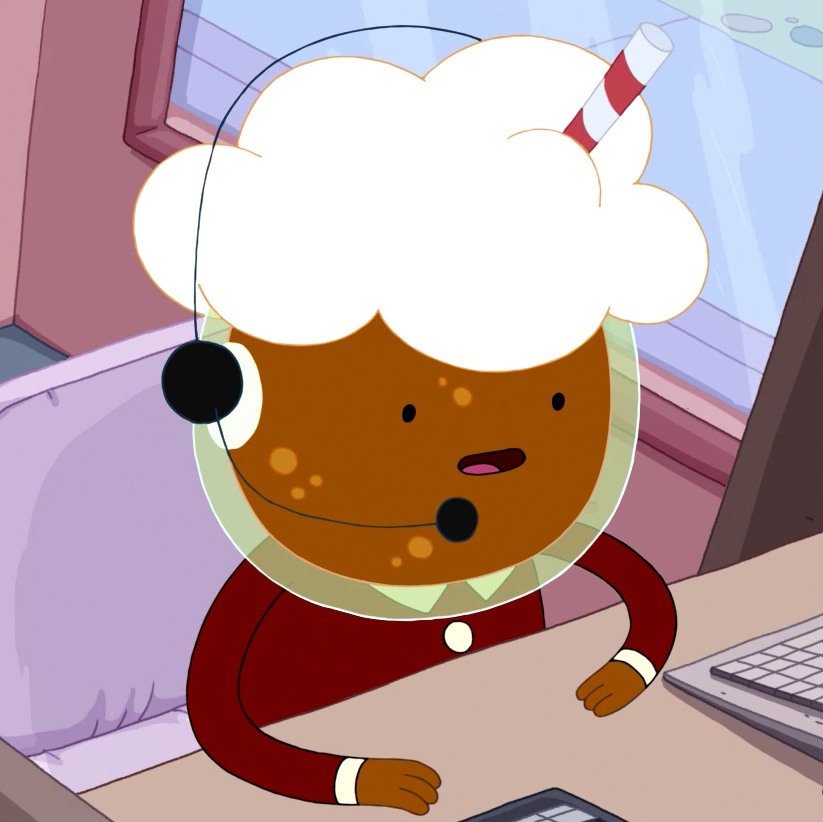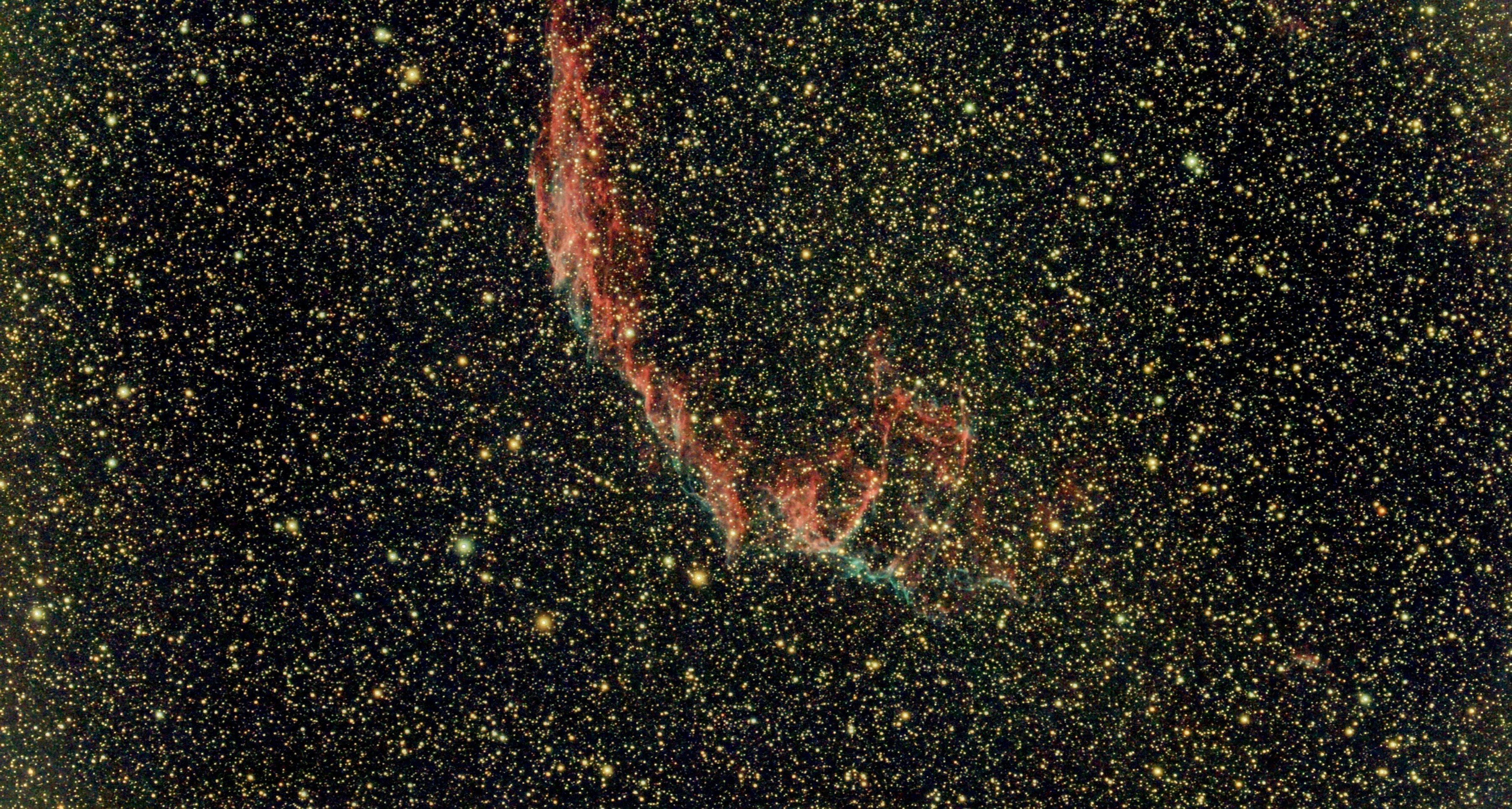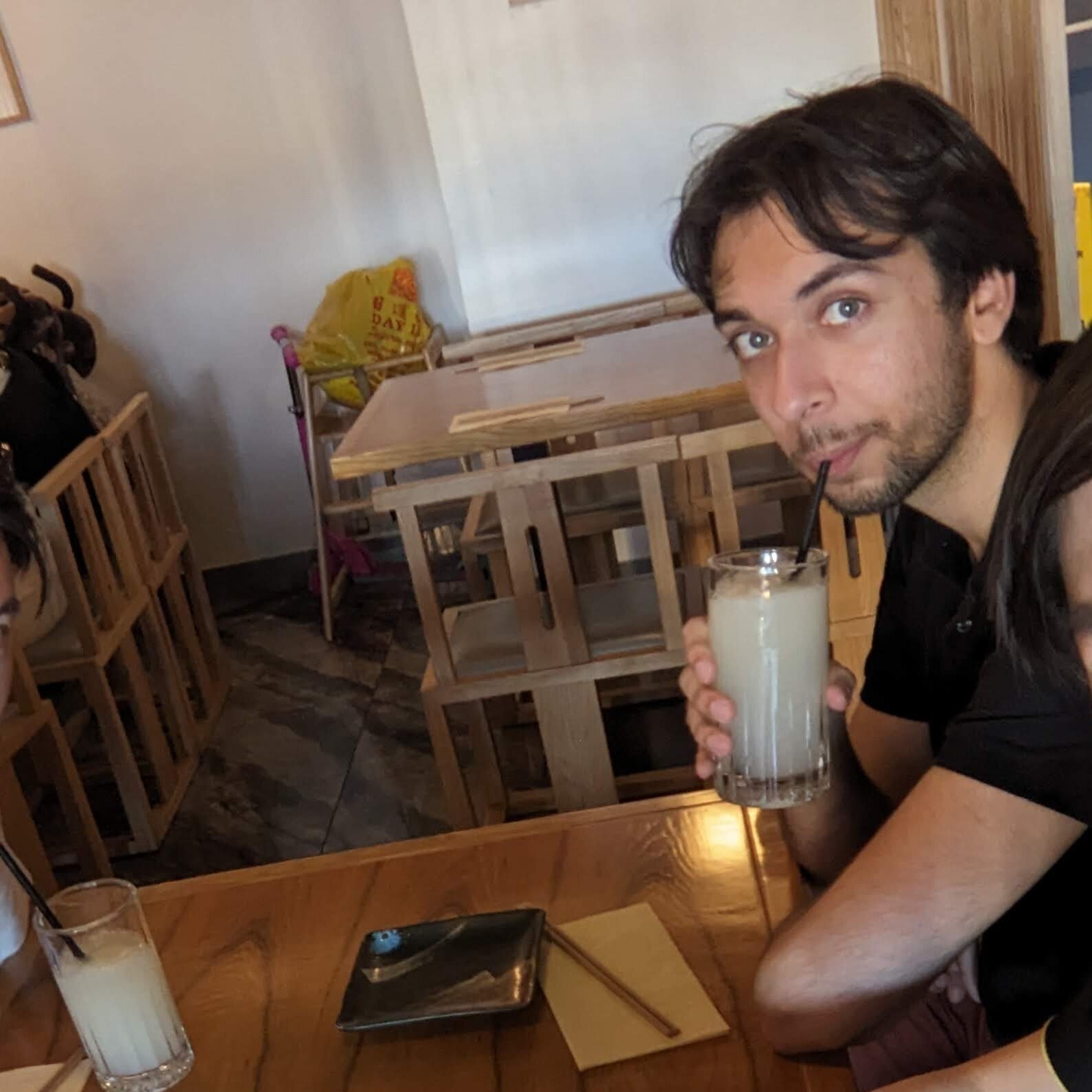It’s so ridiculous when corporations steal everyone’s work for their own profit, no one bats an eye but when a group of individuals do the same to make education and knowledge free for everyone it’s somehow illegal, unethical, immoral and what not.
Using publically available data to train isn’t stealing.
Daily reminder that the ones pushing this narrative are literally corporation like OpenAI. If you can’t use copyright materials freely to train on, it brings up the cost in such a way that only a handful of companies can afford the data.
They want to kill the open-source scene and are manipulating you to do so. Don’t build their moat for them.
And using publicly available data to train gets you a shitty chatbot…
Hell, even using copyrighted data to train isn’t that great.
Like, what do you even think they’re doing here for your conspiracy?
You think OpenAI is saying they should pay for the data? They’re trying to use it for free.
Was this a meta joke and you had a chatbot write your comment?
Was this a meta joke and you had a chatbot write your comment?
if someone said this to me I’d cry
The point that was being made was that public available data includes a whole lot amount of copyrighted data to begin with and its pretty much impossible to filter it out. Grand example, the Eiffel tower in Paris is not copyright protected, but the lights on it are so you can only using pictures of the Eiffel tower during the day, if the picture itself isn’t copyright protected by the original photographer. Copyright law has all these complex caveat and exception that make it impossible to tell in glance whether or not it is protected.
This in turn means, if AI cannot legally train on copyrighted materials it finds online without paying huge sums of money then effectively only mega corporation who can pay copyright fines as cost of business will be able to afford training decent AI.
The only other option to produce any ai of such type is a very narrow curated set of known materials with a public use license but that is not going to get you anything competent on its own.
EDIT: In case it isn’t clear i am clarifying what i understood from Grimy@lemmy.world comment, not adding to it.
So then we as a society aren’t ready to untangle the mess of our infancy in the digital age. ChatGPT isn’t something we must have at all costs, it’s something we should have when we can deploy it while still respecting the rights of people who have made the content being used to train it.
I would go even further and say that we should have it until we can be sure it will respect others’ rights. All kind of rights, not only Copyright. Unlike Bing at the beginning, with all it’s bullying and menaces, or Chatgpt regurgitating private information gathered from God knows where.
The problem with waiting is the arms race with other governments. I feel it’s similar to fossil fuels, but all governments need to take the risk of being disadvantaged. Damned prisoner’s dilemma.
I didn’t want any of this shit. IDGAF if we don’t have AI. I’m still not sure the internet actually improved anything, let alone what the benefits of AI are supposed to be.
A perfectly valid stance to take.
It doesn’t matter what you want. What matters is if corporations can extract $ from you, gain an efficiency, or cut their workforce using it.
That’s what the drive for AI is all about.
No doubt.
It’s not like all this data was randomly dumped at the AIs. For data sets to serve as good training materials they need contextual information so that the AI can discern patterns and replicate them when prompted.
We see this when you can literally prompt AIs with whose style you want it to emulate. Meaning that the data it was fed had such information.
Midjourney is facing extra backlash from artists after a spreadsheet was leaked containing a list of artist styles their AI was trained on. Meaning they can keep track of it and they trained the AI with those artists’ works deliberately. They simply pretend this is impossible to figure out so that they might not be liable to seek permission and compensate the artists whose works were used.
That’s insane logic…
Like you’re essentially saying I can copy/paste any article without a paywall to my own blog and sell adspace on it…
And your still saying OpenAI is trying to make AI companies pay?
Like, do you think AI runs off free cloud services? The hardware is insanely expensive.
And OpenAI is trying to argue the opposite, that AI companies shouldn’t have to pay to use copyrighted works.
You have zero idea what is going on, but you are really confident you do
I clarified the comment above which was misunderstood, whether it makes a moral/sane argument is subjective and i am not covering that.
I am not sure why you think there is a claim that openAI is trying to make companies pay, on the contrary the comment i was clarifying (so not my opinion/words) states that openAI is making an argument that anyone should be able to use copyrighted materials for free to train AI.
The costs of running an online service like chatgpt is wildly besides the argument presented. You can run your own open source large language models at home about as well as you can run Bethesda’s Starfield on a same spec’d PC
Those Open source large language models are trained on the same collections of data including copyrighted data.
The logic being used here is:
If It becomes globally forbidden to train AI with copyrighted materials or there is a large price or fine in order to use them for training then the Non-Corporate, Free, Open Source Side of AI will perish or have to go underground while to the For-Profit mega corporations will continue exploit and train ai as usual because they can pay to settle in court.
The Ethical dilemma as i understand it is:
Allowing Ai to train for free is a direct threat towards creatives and a win for BigProfit Enthertainment, not allowing it to train to free is treat to public democratic AI and a win for BigTech merging with BigCrime
That is very well put, I really wish I could have started with that.
Though I envision it as a loss for BigProfit Enthertainment since I see this as a real boon for the indie gaming, animation and eventually filmmaking industry.
It’s definitely overall quite a messy situation.
You can run your own open source large language models at home about as well as you can run Bethesda’s Starfield on a same spec’d PC
…
Yes, you can download an executable of a chatbot lol.
That’s different than running something remotely like even OpenAI.
The more it has to reference, the more the system scales up. Not just storage, but everything else.
Like, in your example of video games it would be more like stripping down a PS5 game of all the assets, then playing it on a NES at 1 frame per five minutes.
You’re not only wildly overestimating chatbots ability, you’re doing that while drastically underestimating the resources needed.
Edit:
I think you literally don’t know what people are talking about…
Do you think people are talking about AI image generators?
No one else is…
I think you’re confusing training it with running it. After it’s trained, you can run it on much weaker hardware.
I am talking about generative AI, be it text or image both have a challenge with copyrighted material.
“executable of a chatbot” lol, aint you cute
“example of video games”
Are you refering to my joke?
I am far from overestimating capacity, Starfield runs mediocre on a modern gaming system compared to other games. The Vicuna 13b llm runs mediocre on the same system compared with gpt 3.5. To this date there is no local model that i would trust for professional use and chatgpt 3.5 doesnt hit that level either.
But it remains a very interesting, rapidly evolving technology that i hope receives as much future open source support as possible.
“I think you literally don’t know what people are talking about” I hate to break it to you but you’re embarrassing yourself.
I presume you must believe the the following lemmy community and resources to be typed up by a group of children, either that or your just naive.
https://github.com/huggingface/transformers
https://huggingface.co/spaces/HuggingFaceH4/open_llm_leaderboard
https://huggingface.co/microsoft/phi-2 & https://www.microsoft.com/en-us/research/blog/phi-2-the-surprising-power-of-small-language-models/
Hey man, that’s damn hurtful
I’m not sure if someone else has brought this up, but I could see OpenAI and other early adopters pushing for tighter controls of training data as a means to be the only players in town. You can’t build your own competing AI because you won’t have the same amount of data as us and we’ll corner the market.
deleted
deleted
OpenAI is definitely not the one arguing that they have stole data to train their AIs, and Disney will be fine whether AI requires owning the rights to training materials or not. Small artists, the ones protesting the most against it, will not. They are already seeing jobs and commission opportunities declining due to it.
Being publicly available in some form is not a permission to use and reproduce those works however you feel like. Only the real owner have the right to decide. We on the internet have always been a bit blasé about it, sometimes deservedly, but as we get to a point we are driving away the very same artists that we enjoy and get inspired by, maybe we should be a bit more understanding about their position.
That depends on what your definition of “publicly available” is. If you’re scraping New York Times articles and pulling art off Tumblr then yeah, it’s exactly stealing in the same way scihub is. Only difference is, scihub isn’t boiling the oceans in an attempt to make rich people even richer.
deleted by creator
We have a mechanism for people to make their work publically visible while reserving certain rights for themselves.
Are you saying that creators cannot (or ought not be able to) reserve the right to ML training for themselves? What if they want to selectively permit that right to FOSS or non-profits?
They want to kill the open-source scene
Yeah, by using the argument you just gave as an excuse to “launder” copyleft works in the training data into permissively-licensed output.
Including even a single copyleft work in the training data ought to force every output of the system to be copyleft. Or if it doesn’t, then the alternative is that the output shouldn’t be legal to use at all.
Scientific research papers are generally public too, in that you can always reach out to the researcher and they’ll provide the papers for free, it’s just the “corporate” journals that need their profit off of other peoples work…
All of the AI fear mongering is fuelled by mega corps who fear that AI in some sort will eat into their profits and they can’t make money off of it.
Image generation also had similar outcry because open source models smoked all the commercial ones.
Yeah, just wait until they see the ai design tools that allow anyone to casually describe the spare part or upgrade they want and it’ll be designed and printed at home or local fab shop.
Lot of once fairly safe monopolies are going to start looking very shaky, and then things like natural language cookery toolarms disrupting even more…
We’ve only barely started to see what the tech we have now is able to do, yes a million shitty chat bots / img gen apps are cashing in on the hype but when we start seeing some killer apps emerge it’s when people won’t be able to ignore it any longer
This is the hardest thing to explain to people. Just convert it into a person with unlimited memory.
Open AI is sending said person to view every piece of human work, learns and makes connections, then make art or reports based on what you tell/ask this person.
Sci-Hub is doing the same thing but you can ask it for a specific book and they will write it down word for word for you, an exact copy.
Both morally should be free to do so. But we have laws that say the sci-hub human is illegally selling the work of others. Whereas the open ai human has to be given so many specific instructions to reproduce a human work that it’s practically like handing it a book and it handing the book back to you.
True, Big Tech loves monopoly power. It’s hard to see how there can be an AI monopoly without expanding intellectual property rights.
It would mean a nice windfall profit for intellectual property owners. I doubt they worry about open source or competition but only think as far as lobbying to be given free money. It’s weird how many people here, who are probably not all rich, support giving extra money to owners, merely for owning things. That’s how it goes when you grow up on Ayn Rand, I guess.
What data is public?
Cue the Max Headroom episode where the blanks (disconnected people) are chased by the censors because the blanks steal cable so their children can watch the educational shows and learn to read, and they are forced to use clandestine printing presses to teach them.
what’s this? an anti-corporate message that sneers at cable TV companies??? CANCEL THAT SHOW!!!
that show was so amazingly prescient: the theme of the first episode was how advertising literally kills its viewers and the news covers things up. No wonder they didn’t get renewed. ;)
Reminds me of this: https://www.gnu.org/philosophy/right-to-read.html
deleted by creator
Because it’s easy to get these chatbots to output direct copyrighted text…
Even ones the company never paid for, not even just a subscription for a single human to view the articles they’re reproducing. Like, think of it as buying a movie, then burning a copy for anyone who asks.
Which reproducing word for word for people who didn’t pay is still a whole nother issue. So this is more like torrenting a movie, then seeding it.
It’s not that easy, don’t believe the articles being broadcasted every day. They are heavily cherry picked.
Also, if someone is creating copyright works, it is on that person to be responsible if they release or sell it, not the tool they used. Just because the tool can be good (learns well and responds well when asked to make a clone of something) doesn’t mean it is the only thing it does or must do. It is following instructions, which were to make a thing. The one giving the instructions is the issue, and the intent of that person when they distribute is the issue.
If I draw a perfect clone of Donald Duck in the privacy of my home after looking at hundreds of Donald Duck images online, there is nothing wrong with that. If I go on Etsy and start selling them without a license, they will come after ME. Not because I drew it, but because I am selling it and violating a copyright. They won’t go after the pencil or ink manufacturer. And they won’t go after Adobe if I drew it on a computer with Photoshop.
If I draw a perfect clone of Donald Duck in the privacy of my home after looking at hundreds of Donald Duck images online, there is nothing wrong with that
In your picture example it would be an exact copy…
But even if you started a business and when people asked for a picture of Donald Duck, giving them a traced copy is still copyright infringement… Hell, even your bad analogy of a person’s own drawing, still copyright infringement
The worst thing about these chatbots is the people who think it’s amazing don’t understand what it’s doing. If you understood it, it wouldn’t be impressive.
Because humans have more rights than tools. You are free to look at copyrighted text and pictures, memorize them and describe them to others. It doesn’t mean you can use a camera to take and share pictures of it.
Acting like every right that AIs have must be identical to humans’, and if not that means the erosion of human rights, is a fundamentally flawed argument.
Whoosh
I pirated 90% of the texts I used to write my thesis at university, because those books would have cost me hundreds of euros that I didn’t have.
Fuck you, capitalism.
I pirated texts for my thesis even when I had access to them through my university. A lot of journals are just too annoying to use.
this is because the technocrats are allowed to steal from you, but when you steal from them what they’ve stolen from actual researchers that’s a problem
There are no technocrats. Just oligarchs, that titan newer industries. Same as the old boss. Don’t give them more credit than that. It’s evil capitalism. Lump them with bankers, not UX designers imho
In what context would a UI/UX be considered a texhnocrat? I’m very confused
You’re not confused, you’re getting the point. Musk has more in common with Jamie Diamond than the tech workers with which he’s lumped by industry.
It’s not a tech people/company problem. They’re just like accounts, they don’t own the enterprise.
deleted
AFAIK the individual researchers who get their work pirated and put on Sci-Hub don’t seem to particularly mind.
Why would they?
They don’t get paid when people pay for articles.
Back before everyone left twitter, the easiest way to get a paywalled study was hit up to be of the authors, they can legally give a copy to anyone, and make no money from paywalls
Also, no researcher would even exist if grad students had to pay for the papers they read and cite. A lot of people is not fortunate enough to have access to these publications through their uni. Heck, even when I had it, I’d still go to sci-hub just for the sake of convenience.
Like a lot of services nowadays, they offer a mediocre service and still charge for it.
That’s still the easiest way. Email them, don’t tweet them.
It still works. The journal websites always include author contact info, just e-mail them.
legally
Not necessarily. They often do not own the copyright, so then it depends on fair use exceptions. The real owners have gone after authors, which may be the reason they don’t make their articles downloadable by default.
deleted
The asking makes it legal if I recall correctly.
They can’t host a site with all their articles/papers/research, but if anyone asks for a single copy, they can provide it at their discretion.
And since they don’t make any money either way, most provide it and are happy to do so.
Academics don’t care because they don’t get paid for them anyway. A lot of the time you have to pay to have your paper published. Then companies like Elsevier just sit back and make money.
I follow a few researchers with interesting youtube channels, and they often mention that if you ask them or their colleagues for a publication of theirs, chances are they’ll be glad to send it to you.
A lot of them love sharing their work, and don’t care at all for science journal paywalls.
Other than be happy for that attention and being curious of what extra things you can find in their field, they get quoted and that pushes their reputation a little higher. Locking up works heavily limits that, and the only reason behind that is a promise of a basic quality control when accepting works - and it’s not ideal, there are many shady publications. Other than that it’s cash from simple consumers, subscriptions money from institutes for works these company took a hold of and maybe don’t have physical editions anymore just because, return to fig. 1, they depend on being published and quoted.
Don’t mind? Hell, we want people to read that shit. We don’t profit at all if it’s paywalled, it hurts us and hurts science in general. This is 100% the wishes of scientific for profit journals.
I’m starting to think the term “piracy” is morally neutral. The act can be either positive or negative depending on the context. Unfortunately, the law does not seem to flow from morality, or even the consent of the supposed victims of this piracy.
The morals of piracy also depend on the economic system you’re under. If you have UBI, the “support artists” argument is far less strong, because we’re all paying taxes to support the UBI system that enables people to become skilled artists without worrying about starving or homelessness - as has already happened to a lesser degree before our welfare systems were kneecapped over the last 4 decades.
But that’s just the art angle, a tonne of the early-stage (i.e. risky and expensive) scientific advancements had significant sums of government funding poured into them, yet corporations keep the rights to the inventions they derive from our government funded research. We’re paying for a lot of this stuff, so maybe we should stop pretending that someone else ‘owns’ these abstract idea implementations and come up with a better system.
When you publish something in an academic journal, the journal owns the work. The journal also sells that work and it’s how it makes its money.
Yes it is, and that’s the problem. I work my butt off to identify mechanisms to reduce musculoskeletal injury risk, and then to maintain my employment, I have to hand the rights to that work to a private organization that profits over it. To make matters worse, I then do the work to ensure the quality of other publications for the journal through the peer review process and am not compensated for it.
Oh OpenAI is just as illegal as SciHub. More so because they’re making money off of stolen IP. It’s just that the Oligarchs get to pick and choose. So of course they choose the arrangement that gives them more control over knowledge.
They’re not serving you the exact content they scraped, and that makes all the difference.
Well if you believe that you should look at the times lawsuit.
Word for word on hundreds/thousands of pages of stolen content, its damming
Why do you assume that I haven’t? The case hasn’t been resolved and it’s not clear how The NY Times did what they claim, which is may as well be manipulation. It’s a fair rebuttal by OpenAI. The Times haven’t provided the steps they used to achieve that.
So unless that’s cleared up, it’s not damming in the slightest. Not yet, anyway. And that still doesn’t invalidate my statement above, because it’s still under very specific circumstances when that happens.
Also intention is pretty important when determining the guilt of many crimes. OpenAI doesnt intentionally spit back an author’s exact words, their intention is to summarize and create unique content.
Ah, yes. The defense of “I didn’t mean to do it.” Always a classic.
No, the real defense is “that’s not how LLMs work” but you are all hinging on the wrong idea. If you so think that an LLM is capable of doing what you claim, I’d love to hear the mechanism in detail and the steps to replicate it.
I mean, I’m not sure why this conversation even needs to get this far. If I write an article about the history of Disney movies, and make it very clear the way I got all of those movies was to pirate them, this conversation is over pretty quick. OpenAI and most of the LLMs aren’t doing anything different. The Times isn’t Wikipedia, most of their stuff is behind a paywall with pretty clear terms of service and nothing entitles OpenAI to that content. OpenAI’s argument is “well, we’re pirating everything so it’s okay.” The output honestly seems irrelevant to me, they never should have had the content to begin with.
That’s not the claim that they’re making. They’re arguing that OpenAI retains their work they made publicly available, which OpenAI claims is fair use because it’s wholly transformative in the form of nodes, weights and biases, and that they don’t store those articles in a database for reuse. But their other argument is that they created a system that threatens their business which is just ludicrous.
So it’s content laundering
What a colorful mischaracterization. It sounds clever at face value but it’s really naive. If anything about this is deceptive, it’s the lengths that people go to to slander what they dislike.
I feel most people critical of AI don’t know how a neural network works…
That is exactly what’s going on here. Or they hate it enough that they don’t mind making stuff up or mischaracterizing what it does. Seems to be a common thread on the Fediverse. It’s not the first time this week I’ve seen it.
Actually content laundering is the best term I’ve heard to describe the process. Just like money laundering, you no longer know the source and know it’s technically legal to use and distribute.
I mean, if the copyrighted content wasn’t so critical, they would train models without it. Their essentially derivative works, but no one wants to acknowledge it because it would either require changing our copyright laws or make this potentially lucrative and important work illegal.
Content laundering is not a good way to describe it because it’s misleading as it oversimplifies and mischaracterizes what a language model actually does. It’s a fundamental misunderstanding of how it works. Training language models is typically a transparent and well-documented process as described by the mountains of research over the past decades. The real value comes from the weights of the nodes in the neural network and not the source that it spits out in its entirety when it was trained. The source material is evaluated and wholly transformed into new data in the form of nodes and weights. The original content does not exist as it was within the network because there’s no way to encode it that way. It’s a statistical system that compounds information.
And while LLMs do have the capacity to create derivative works in other ways, it’s not all that they do, or what they always do. It’s only one of the many functions that it has. What you say would probably be true if it was only trained on a single source, but that’s not even feasible. But when you train it on millions of sources, what remains are the overall patterns of language within those works. It’s much more sophisticated and flexible than what you describe.
So no, if it was cut and dry there would be grounds for a legitimate lawsuit. The problem is that people are arguing points that do not apply but sound reasonable when they haven’t seen a neural network work under the hood. If anything, new laws need to be created to address what LLMs do if you’re so concerned about proper compensation.
I am familiar with how LLMs work and are trained. I’ve been using transformers for years.
The core question I’d ask is, if the copyrighted material isn’t essential to the model, why don’t they just train the models without that data? If it is core to the model, then can you really say they aren’t derivative of that content?
I’m not saying that the models don’t do something more, just that the more is built upon copyrighted material. In any other commercial situation, you’d have to license/get approval for the underlying content if you were packaging it up. When sampling music, for example, the output will differ greatly from the original song, but because you are building off someone else’s work you must compensate them.
Its why content laundering is a great term. The models intermix so much data that it’s hard to know if the content originated from copyrighted materials. Just like how money laundering is trying to make it difficult to determine if the money comes from illicit sources.
It’s great how for most of us we’re taught that just changing the order of words is still plagerism. For them they frequently end up using the exact same words as other things and people still argue it somehow is intelligent and somehow not plagerism.
“Changing the order of words” is what it does? That’s news to me. And do you have examples of it “using the exact same words as other things” without prompt manipulation?
Why does the prompting matter? If I “prompt” a band to play copyrighted music does that mean they get a free pass?
That’s not a very good analogy because the band would be reproducing an entire work of art which an LLM does not and cannot. And by prompt manipulation I mean purposely making it seem like the LLM is doing something it wouldn’t do on its own. The operating word is seem, which is what I meant by manipulation. The prompting here is irrelevant, but how it’s done is. So unless The Times releases the steps they used to get ChatGPT to output what it did, you can’t really claim that that’s what it does.
In a blog post, OpenAI said the Times “is not telling the full story.” It took particular issue with claims that its ChatGPT AI tool reproduced Times stories verbatim, arguing that the Times had manipulated prompts to include regurgitated excerpts of articles. “Even when using such prompts, our models don’t typically behave the way The New York Times insinuates, which suggests they either instructed the model to regurgitate or cherry-picked their examples from many attempts,” OpenAI said.
If you passed them a sheet of music I’d say that’s on you, it would be your responsibility to not sell recordings of them playing it.
Just like if I typed the first chapter of Harry Potter into word it is not Microsoft’s intent to breach copyright, it would have been my intent to make it do it. It would be my responsibility not to sell that first chapter, and they should come after me if I did, even though MS is a corporation who supplied the tools.
What really breaks the suspension of disbelief in this reality of ours is that fucking advertising is the most privacy invasive activity in the world. Seriously, even George Orwell would call bullshit on that.
What I find even more mind boggling is that despite all that tracking, advertising still misses the mark by a mile. I regularly see the same ad repeated 10 times in a row while also being completely irrelevant to me. Meanwhile I also frequently miss stuff that would be relevant for me and that should be covered by ads (e.g. movie releases, I might pick up the first trailer, but completely miss when the movie actually hits cinemas).
For the money and effort spend on ads you’d think they could do a lot better than what they are.
Ads know your profile better than yourself. It’s telling you you’re a cheap bastard who won’t actually buy popcorn at the movies, making the theater run at a loss.
/S
And people wonder why there’s so much push back against everything corps/gov does these days. They do not act in a manner which encourages trust.
OpenAI isn’t really proven as legal. They claim it is, and it’s very difficult to mount a challenge, but there definitely is an argument that they have no fair use protection - their “research” is in fact development of a commercial product.
Using it to train is a grey area, if you paid for the works. If you didn’t, it’s still illegal
What it does is output copyrighted works which is copyright infringement. That is the legal issue. It’s very easy to prompt it into giving full copyright text they never even paid to look at, let alone give to other people.
“AI” can’t even handle switching synonyms to make it technically different like a college kid cheating on an essay
Their argument is that the copying to their training database is “research”. This would be a legal fair use of unauthorised copying. However, normally with research you make a prototype, and that prototype is distinctly different from the final commercial product. With LLM’s the prototype is the finished commercial product, they keep adding to it, thus it isn’t normal fair use.
When a court considers fair use, the first step is the type of use. The exemptions are education, research, news, comment, or criticism. Next, they consider the nature of the use, in particular whether it is commercial. Calling their copying “research” is a bit of a stretch - it’s not like they’re writing academic papers and making their data publicly available for review from other scientists - and their use is absolutely commercial. However, it needs to go before a judge to make the decision and it’s very difficult for someone to show a cause of action, if only because all their copying is done secretly behind closed doors.
The output of the AI itself is a bit more difficult. The database ChatGPT runs off of does not include the whole works it learned from - it’s in the training database where all the copying occurs. However, ChatGPT and other LLM’s can sometimes still manage to reproduce the original works, and arguably this should be an offense. If a human being reads a book and then later writes a story that replicates significant parts of the book, then they would be guilty of plagiarism and copyright infringement, regardless of whether they genuinely believe they were coming up with original ideas.
If you have enough money, you can do whatever you want!
What do you expect when people support 90 year copyrights after death?
deleted
They are also right.
deleted
deleted by creator
deleted
It’s self evident. You’re trolling. And you’re digging in to your trolling.
deleted by creator
deleted
That’s a pretty strong accusation. You seem to like to wade through people’s post history but to my cursory glance nothing would indicate this poster is a troll.
You understand AI posts frequently surface on this platform and people will engage with those posts even if they disagree with you?
deleted
Yeah you keep spamming that screen shot. Idk I’m not seeing it. I read the thread you’re posting and it seems like you’re just digging in and insisting that someone that disagrees with you must be a troll.
For what it’s worth, you made the same accusation against me yesterday and after I think I pretty effectively (and unnecessarily I might add) defended myself you deleted those posts. Making spurious accusations like that (and, as I read it, this) are also trollish behavior that doesn’t further any discussion. I’ve looked in your thread you’re posting. You come out flying with accusations based on extremely flimsy evidence. I think OPs responses seemed entirely warranted.
deleted
No, see, it actually isn’t self evident. After being accused of being disingenuous because he only talked about open source in the context of AI — again almost the verbatim ridiculous accusation you lobbed at me before cowardly deleting it - he asked for a citation relevant to the issue and someone sent a CNN article about Duolingo laying off staff. That isn’t the gotcha you think it is. It doesn’t “destroy my reputation” lmao to point out that you are, in fact, acting like a troll. This is a pattern of yours. Be better.
deleted by creator
This is different. AI as a transformative tech is going to usher the US economy into the next boom of prosperity. The AI revolution will change the world and allow people to decide if they want to work for money or not (read UBI). In case you haven’t caught on, am being sarcastic.
All this despite ChatGPT being a total complete joke.
So, I feel taking an .epub and putting it in a .zip is pretty transformative.
Also you can make ChatGPT (or Copilot) print out quotes with a bit of effort, now that it has Internet.
In case you haven’t caught on, am being sarcastic.
It sounds like a completely sincere Marc Andressen post to me.
The IP system, which goes to great lengths to block things like open-access scientific publications, is borked borked borked borked borked.
If OpenAI and other generative AI projects are the means by which we finally break it so we can have culture and a public domain again, well, we had to nail Capone with tax evasion.
Yes, industrialists want to use AI [exactly they way they want to use every other idea – plausible or not] to automate more of their industries so they can pay fewer people less money for more productivity. And this is a problem of which generative AI figures centrally, but it’s not really all that new, and eventually we’re going to have to force our society to recognize that it works for the public and not money. I don’t think AI is going to break the system and lead us to communist revolution ( The owning class will tremble…! ) But eventually it will be 1789 all over again. Or we’ll crush the fash and realize the only way we can get the fash to not come back is by restoring and extending FDR’s new deal.
I am skeptical the latter can happen without piles of elite heads and rivers of politician blood.
Thats actually not a bad idea, train a model with all the data in scihub a then release the model to the public
It would still be useless, the thing would just produce bullshit papers.
Actually a good point.
That would likely be explicitly illegal if the NYT case succeeds (and it isn’t fraud as OpenAI alleges)
This is just the most inefficient zip file ever created
We need to ban the publishing business from academic stuff. Have the Universities host a site that’s free access. They can also better run the peer review system and the journals would also also no longer control what research sees the light of day even behind a paywall.
How would you publish if you’re not a part of a major research institution? Los Alamos National Lab could host its own papers just fine, but what about small-time labs? I know of at least one person who doesn’t even officially work in science but publishes original research they do in their free time.
The journal system still provides a service, even if they over-charge for access. The peer review system has value. Imagine if there was zero barrier to publish. As a reader, you’d have to wade through piles of trash to find decent science.
Where would you find it all? Currently we use journal aggregators, whose service also has value and costs money. Are you really going to go to every university’s website looking for research relevant to your area? We could do that again, but with everyone responsibile for publishing their own work, well, who gets indexed with the aggregators?
You get published with a university instead of a for profit publishing system. And universities would get a good or bad reputation for their peer review, just like journals. The aggregator could easily be run by a coalition of universities with government grants to make the maintenance and upkeep free to the users and universities.
We do not have to lock research behind paywalls.
The problem isn’t just publishing though, it’s academia as well. Scientists are incentivized to publish in “prestigious” closed access journals such as Nature. They are led to believe it’s better for their career than publishing in open access journals such as PLOS One. As such, groundbreaking papers often get paywalled. Universities then feel obligated to pay outrageous subscription fees to access them.
Yup. And this would change that, giving universities more influence.
Like https://doaj.org/
Time to make OpenASci?
/rimshot
More people need to think like you. Why isn’t “Total War: Warhammer” just called “Total Warhammer”? These are the questions that keep me up at night
I agree with you, but also Total War is the trademark brand and they’re also gonna use it.
Total War: Hammer!
Stop, Hammer time!
“Go with the flow”, it is said
Yeah, but did SciHub pay Nigerians a pittance to look at and read about child rape? Because- wait, I have no idea what I’m even arguing. Fuck OpenAI though.
OpenAI did those subhuman training of ChatGPT in Kenya, not Nigeria. And since the Kenyan govt is a western lapdog these days, nothing would ever come out of that.
Oh, well that makes it okay then. My mistake.
Kind of a strawman, I’d like everything to be FOSS, and if we keep Capitalism (which we shouldn’t), it should be HEAVILY regulated not the laissez-faire corporatocracy / oligarchy we have now.
I don’t want any for-profit capitalists to have any control of AI. It should all be owned by the public and all productive gains from it taxed at 100%. But open source AI models, right on.
And team SciHub–FUCK YEAH!





















